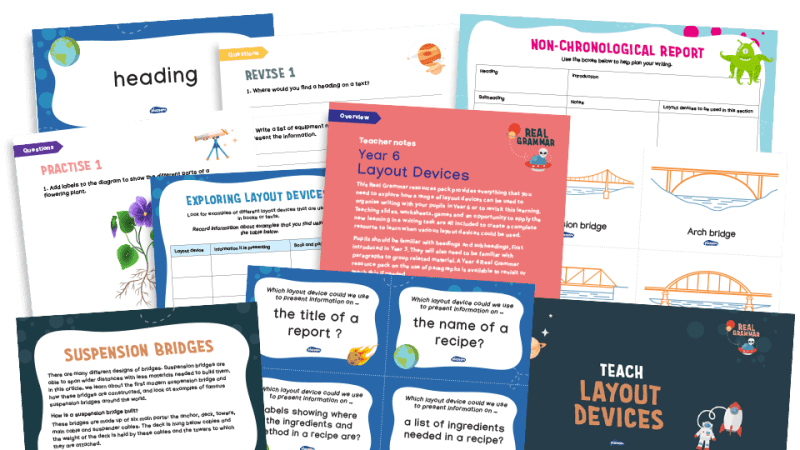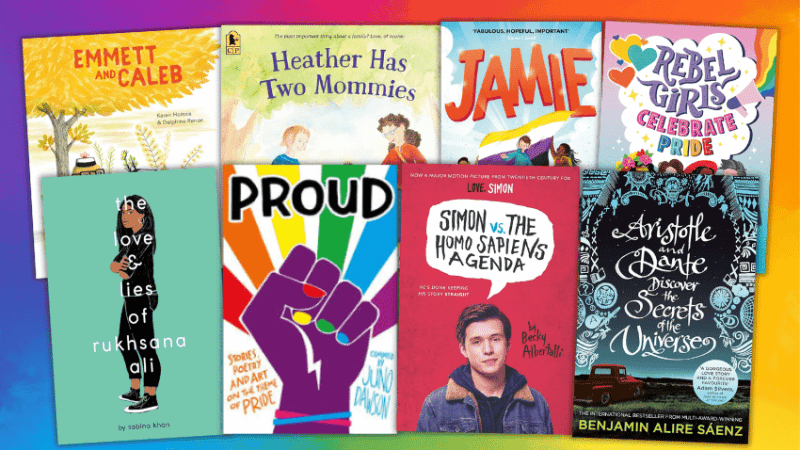Whole-school literacy and registration reading time

Zoe Enser unpacks the power that a teacher-led, tutor time reading programme can have…

- by Teachwire

We know that being exposed to stories – be it via listening to them, creating them or independently reading them – improves standards of literacy. It’s a statement that feels intuitively right.
One of the very first things most parents will do with their children from babyhood is pore over the pages of books like The Very Hungry Caterpillar, before heading off together on a bear hunt with glee.
Young children love storytelling, and the process of immersing themselves in elaborate tales that help to shape their understanding of the world around them – yet all too often, this kind of shared creation and reading of stories is abandoned once they leave primary school.
Teacher-led reading
Stories are powerful tools for learning. In his book Why Don’t Students Like School?, Daniel Willingham devotes a whole section to the importance of stories, arguing that, “The human mind seems exquisitely tuned to understand and remember stories – so much so, that psychologists sometimes refer to stories as ‘psychologically privileged’, meaning that they are treated differently in memory than other types of material.”
It seems, then, that stories are a vital tool for learning, with the human mind literally hardwired to remember them. Throughout history, stories have been shared within communities to not only to pass on wisdom and knowledge from one generation to the next, but from one person to another. Stories are powerful.
To return to our previous statement about stories improving literacy – what if we could find an additional place for stories in school, outside of dedicated English lessons? What potential might there be for a carefully designed tutor programme, one focused on teacher-led reading, to support whole school literacy?
Historically, tutor reading programmes have relied on a personal choice of texts. While I’d be loath to tell students eager to enhance their reading skills they can’t have any choice, the time we have with our students in school is limited. That means that if we’re serious about developing students’ literacy, then a good place to begin would be with a tutor reading programme, whereby teachers read shared texts with the whole class.
A positive start
In 2017, the University of Texas published a short article outlining how sharing stories and reading them aloud to students had a notable impact on literacy levels.
By reading to students across all subjects, with staff modelling fluency and the correct pronunciation of unfamiliar vocabulary, they found a general increase in students’ phonological awareness and language development, which sounds like a positive start.
Reading aloud also has the added benefit of positioning teachers to guide students through challenging texts which they may not yet be able to access thselves. This gives students opportunities to engage with interesting, enriching stories that might feature sophisticated vocabulary and structures, as well as challenging content.
Some students will prefer to stay firmly within their comfort zones when reading independently, sticking with familiar books that offer little challenge.
There’s no doubt that developing reading can be hard work, but sticking only with what you know means less exposure to rich vocabulary, and less chance of fostering a well-developed inner voice – without which, a student’s ability to enjoy the pace and rhythm of more advanced stories will be severely diminished.
How many students have you met who have continued to slog through the same small selection of texts – or indeed the same text – for most of the school year?
Some students may be able to decode the words before them, but when you try to discuss the text with them, they’ll often be found to have lost the thread of even relatively simple stories, their narratives becoming increasingly fragmented as they limp through yet another session, accompanied by the ticking of the clock and the rustle of their neighbour’s pages, drawing them out of a story frequently designed for much younger readers.
Is it any wonder that personal reading sessions within tutor time are often filled with readers who are competent, but reluctant to engage?
Fast reading
Research carried out at Sussex University in 2017 further seems to suggest that teacher-led reading could deliver significant benefits for all students.
In a small-scale study, the researchers examined the technique of ‘fast reading’ – in which two challenging texts are read aloud back to back in English lessons – and explored the impact on readers below their chronological reading age, those from disadvantaged backgrounds and those who already achieving well in reading tests.
On average, the students made reading comprehension gains of 8.5 months. The team concluded that students often encounter texts as fragments across the curriculum, just like those students plugging away at personal reading during tutor time and losing the thread.
The benefits of hearing the pace, rhythms and structures of whole texts had a significant impact on students’ understanding of the stories being told – stories we know they’re already primed to remember in the long term, despite the material being challenging.
This again suggests that a well thought out, teacher-led reading programme conducted in tutor time could prove fruitful in developing reading comprehension – but that’s not to say that there are gains to be had in literacy alone.
There’s also an opportunity here for us to use this as a vehicle for broadening students’ knowledge and cultural literacy too. If we can enable students to access a range of texts they might never have experienced without us, then we can build firm foundations for their later learning and later life.
Primed for retention
Great literary texts of all persuasions tend to be in dialogue with some of the most important questions humanity has grappled with throughout the ages and across many cultures. By giving students access to a wide range of authors, settings, characters, and stories, we can empower them to engage further with such ideas themselves.
They may not love all that they read within those sessions, of course – but through experiencing the villains, heroes, trials and triumphs of great literature, they will at least be much better equipped to explore similar issues in their own lives as they encounter them.
Returning to Willingham’s earlier point, these are also stories that are likely to stay with students, since their brains are primed for retention. Think back to your own days at school, and consider what you’re still able to recall and why.
Chances are, at least some of those memories will involve stories you heard read aloud (for me, it was The Owl Service) and tales related to you by teachers and friends. It’s these that can stick with us the most, lingering on in the background of our minds and ultimately shaping who we are and who we want to be.
Reading in tutor time can free us from the constraints of content coverage, mark schemes and analysis that often plague our curriculum. Instead, we’re allowed to experience stories in a wholly different, and much more positive way.
Altogether now
The communal experience afforded by a shared tutor reading programme is worth keeping in mind.
After all, there’s a reason why performance and theatrical traditions have had such prominent place within our society, going right back to ancient Greece.
As we laugh and cry, both at and with the characters we follow, our sense of group cohesion strengthens and our relationships grow as a result. Even in the absence of any impact on student literacy levels, this communal experience alone would make every page shared in tutor time well worth the effort.
Zoe Enser is a specialist advisor for English at The Education People; for more information, visit theeducationpeople.org or follow @greeborunner.






